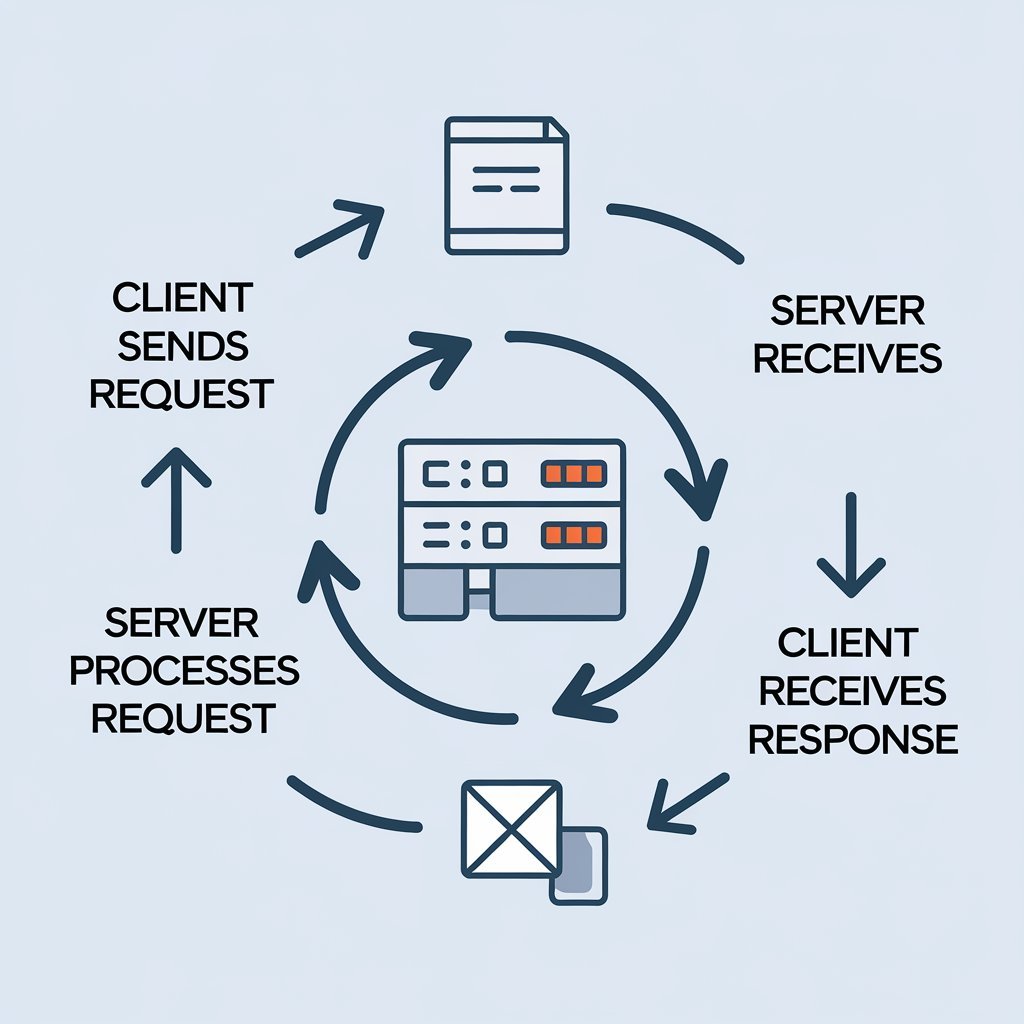What is protocol? In simple terms, a protocol is a set of rules or guidelines that allow different devices, programs, or systems to communicate with each other smoothly. Think of it like the instructions you follow when you play a game or talk to a friend. These instructions ensure that everyone knows what to do, so things don’t get mixed up. Without protocols, computers, phones, and other devices wouldn’t be able to understand each other and share information.
For example, when you send a message over the internet, there’s a protocol that ensures the message goes from one place to another without any issues. These rules are important in many areas, like technology, the internet, and even in everyday life. Protocols help keep things organized and make sure everyone follows the same rules, no matter where they are.
What Is Protocol? Exploring the Basics of Communication Rules
What is protocol? Simply put, it is a set of rules that help things work together smoothly. Protocols are used by computers, phones, and many other devices to communicate with each other. Think of it like when you follow a recipe while cooking. The recipe gives clear instructions to make sure the dish turns out just right. Similarly, protocols give devices instructions on how to send and receive information so everything works properly.
Every time you use the internet or send a message on your phone, there is a protocol behind it. These protocols make sure your information travels to the right place and reaches the person you’re sending it to. Without protocols, your computer and your phone wouldn’t know how to talk to each other, which would cause a lot of confusion.
For example, when you send an email, your email goes through several protocols to ensure it reaches the right person. These rules, like SMTP (Simple Mail Transfer Protocol), help the email travel through the internet and land safely in someone else’s inbox.
Protocols can be seen as the “rules of the road” for digital communication, ensuring everything runs smoothly, just like traffic rules keep drivers safe on the road.
What Is Protocol in Networking? How Computers Talk to Each Other
When computers talk to each other, they use something called networking protocols. These protocols tell the computers how to send and receive information over a network. You can think of networking protocols as the traffic signs for the internet. Without them, the computers wouldn’t know where to send data, causing a lot of confusion.
Networking protocols make sure the data travels from one computer to another in the right order and without any mistakes. For example, one of the most common networking protocols is TCP/IP (Transmission Control Protocol/Internet Protocol). This protocol is like a set of instructions that allows computers to communicate with each other over the internet. It breaks the data into small packets, sends them across the network, and then reassembles them on the other side.
These protocols are also important for making sure data is sent safely. They help protect your personal information when you use websites or send messages. Without these rules, hackers could easily steal your data, and that would be a big problem.
Popular Networking Protocols
- TCP/IP: The most widely used protocol for sending and receiving data over the internet.
- HTTP/HTTPS: Used by web browsers to request and display websites. HTTPS is the secure version, which helps protect your information when browsing the web.
- FTP: A protocol used for transferring files from one computer to another over the internet.
The Role of Protocols in Everyday Life: From Messaging to Payments
Now that we know what protocol is, you might be wondering how it affects your daily life. The truth is, protocols are everywhere. They are behind the scenes, helping to make sure things run smoothly whenever we use the internet, make phone calls, or even buy something online.
For instance, when you send a message on your phone or computer, there’s a protocol that helps the message travel from your device to your friend’s. It ensures the message is delivered safely, and it even tells your phone when the message has been read. This makes texting and chatting so much easier.
When you buy something online, protocols make sure that your payment information is sent safely and that the order goes through correctly. These protocols help prevent fraud, ensuring that your money is sent to the right place, and that your personal information is protected from hackers. Without these rules, online shopping wouldn’t be as secure, and there would be a lot more mistakes.
Protocols in Digital Communication
- SMS and MMS Protocols: These help phones send and receive text messages and multimedia messages (like pictures or videos).
- Payment Protocols: For example, HTTPS and encryption protocols ensure that your credit card information is safe when making online payments.
Why Are Protocols Important? Keeping Communication Smooth and Safe
You might be wondering, “Why are protocols so important?Conventions guarantee that the sites in general, applications, and frameworks we use are viable with each other. They make communication easier and more reliable. Think about it—if every phone or computer used different rules to send messages, we’d never be able to talk to each other. There would be chaos!
Moreover, protocols help protect our information. They keep our data safe from hackers who might want to steal personal details like passwords or credit card numbers. For example, the HTTPS protocol, used for websites, ensures that your connection to a website is secure and that nobody can spy on what you’re doing.
Without protocols, there would be a lot of errors, and it would be hard to trust that information is sent correctly. Whether you’re sending an email or making a video call, protocols ensure that the message is received exactly how it was sent.
Protocols and Security
- Encryption Protocols: These protect the data you send over the internet, making sure no one can intercept and read it.
- Authentication Protocols: These confirm that the person you’re communicating with is who they say they are, protecting against fraud.
The Impact of Protocols in Modern Technology: Shaping Our Digital World
Protocols have had a huge impact on modern technology. From the internet to social media and beyond, these rules help everything run smoothly. Without protocols, we wouldn’t have the fast, reliable, and secure digital world we live in today.
Take social media, for example. When you post a picture or send a comment, the data travels over the internet following a set of protocols. These protocols make sure the data reaches the right platform and that your information is kept secure.
In the same way, when you use apps like Zoom or Skype to make video calls, protocols help the audio and video travel from one computer to another in real time. Without the right protocols, there would be delays, or the call might not even work at all.
In fact, the rise of smart devices like voice assistants (e.g., Amazon Alexa or Google Home) is also thanks to protocols. These devices use specific protocols to understand your voice and respond with the correct information.
Future of Protocols in Technology
- 5G Networks: With the new 5G technology, there will be faster and more reliable protocols to manage the increased demand for data.
- IoT Protocols: The Internet of Things (IoT) relies on special protocols to allow devices like smart thermostats, lights, and fridges to communicate with each other.
What Is Protocol in Cybersecurity? How It Protects Our Information
When we talk about cybersecurity, we are referring to the ways we keep our data safe from cyberattacks. Protocols play a key role in ensuring that our personal information is protected from hackers and other malicious individuals.
Many protocols help secure data as it travels across the internet. For example, encryption protocols ensure that even if someone tries to intercept your data, they won’t be able to read it. These protocols scramble your data so that only the intended recipient can understand it.
Moreover, authentication protocols help verify that you are who you say you are when you log into websites or apps. They prevent others from accessing your accounts and stealing sensitive information.
Without these cybersecurity protocols, our digital world would be much more dangerous, and our personal information would be at risk.
Common Cybersecurity Protocols
- TLS/SSL: These are encryption protocols used to secure data being transferred between websites and your browser.
- VPN Protocols: A VPN (Virtual Private Network) uses a protocol to protect your data when you’re browsing the web, ensuring privacy and security.
What Is Protocol in Social Media and Messaging Apps?
Protocols are also used in the apps we use every day, like Facebook, Instagram, or WhatsApp. When you send a message, a photo, or even make a call, there’s a protocol working in the background to make sure it gets to the right person.
Social media platforms and messaging apps use different protocols to handle various types of data. For instance, when you send a picture on WhatsApp, the protocol ensures that the image is compressed and transferred securely to the other person.
These apps also use encryption protocols to keep your messages private, so only you and the person you’re talking to can read them.
How Social Media Apps Use Protocols
- Just you and the beneficiary will actually want to peruse your interchanges thanks to start to finish encryption.
- Real-Time Messaging Protocols: These help ensure that messages are delivered instantly without delay.
Conclusion: Understanding What Is Protocol and Its Impact on Our Lives
In conclusion, understanding what protocol is helps us see how the digital world functions smoothly. Whether we are sending a message, shopping online, or simply browsing the web, protocols are always there to ensure everything works as it should. These rules make sure devices, apps, and networks communicate properly, and they keep our information safe from harm.
So, the next time you send a message or use an app, remember that protocols are the unsung heroes behind it all, making our digital experiences safe, reliable, and enjoyable. Without them, the technology we use every day wouldn’t be as effective or secure.


